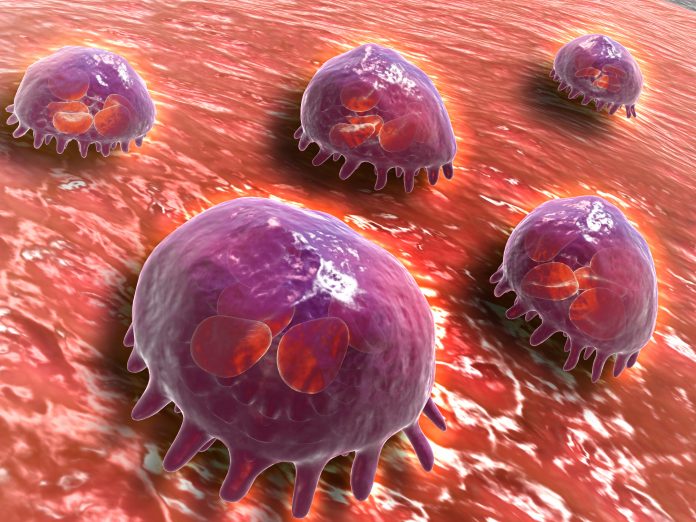
DEM BioPharma, a new immuno-oncology therapeutics company that leverages the deep expertise of its scientific founders in CRISPR technologies and macrophage biology, announced its launch last week with an initial $70 million in financing led by venture capital firm Longwood partners and Alta Partners.
The company’s focus is to create new therapies that leverage macrophages and other myeloid effector cells to eliminate tumors by targeting novel “don’t eat me” (DEM) and “eat me (EM) signals on cancer cells and macrophages to create a new generation of immunotherapies.
The three co-founding scientist of DEM are:
- Jonathan Weissman, Ph.D.—Whitehead Institute, and a renowned researchers in genome-wide CRISPR screens;
- Michael Bassik, Ph.D.—Stanford University, a biologist in cancer, phagocytes, and CRISPR screening; and
- Kipp Weiskopf, M.D., Ph.D.—Whitehead Fellow and physician at Dana-Farber Cancer Institute, and a leader in macrophage and cancer biology.
In its launch announcement DEM BioPharma noted that there is an untapped area of therapeutic development opportunity focused on macrophage biology and pathways in the innate immune system to discover and exploit DEM and EM signals on cancers. Current efforts in this area include only a handful of investigational therapies targeting these signals. The company will use a new, proprietary discovery platform it has named CHoMP (Co-culture with Human Myeloid Phagocytes). CHoMP can identify unexplored DEM and EM signals via inter-cellular CRISPR screening using tumor cells, primary macrophages, and other innate immune effector cells.
“The currently known DEM and EM pathways were discovered serendipitously,” said Bassik in a press release. “Similar to other areas of immunotherapy, there are likely other signals that are more potent and offer better therapeutic targets, but no one has yet taken a systematic approach to identifying those pathways.”
According to Weissman, the CHoMP platform can methodically evaluate unexplored DEM/EM signals leverages screening capabilities in primary human cells using its CRISPR-based screening technology. The platform has already identified a number of promising DEM/EM signals, including a novel pathway called APMAP. In preclinical work, targeting APMAP enhanced tumor cell phagocytosis in multiple cancer cell types and animal cancer models, and demonstrated synergistic effects with a broad range of tumor-binding antibodies.
“APMAP is just one of the promising programs identified using the CHoMP platform, and the encouraging initial data on this pathway has helped validate our differentiated approach to identifying novel, potent DEM/EM signals,” added David Donabedian, co-founder and start-up CEO, and operating partner of Longwood Fund. “The company plans to use proceeds from this financing to further develop our platform and to advance our portfolio of novel targets towards therapeutic development in oncology.”
The initial board of directors for the company includes Christoph Westphal, M.D., Ph.D., as the founding CEO, who is also a founding partner of Longwood Fund; Dan Janney, managing partner, Alta Partners; Dylan Morris, managing director, Insight Partners; Marie-Claire Peakman, Ph.D., principal, Pfizer Ventures; and Hiro Kimura, Ph.D., Investment Director, Astellas Venture Management. Jan Skvarka, former CEO of Trillium Therapeutics, which was acquired by Pfizer for $2.22 billion in November 2021— is Executive Chairman.













